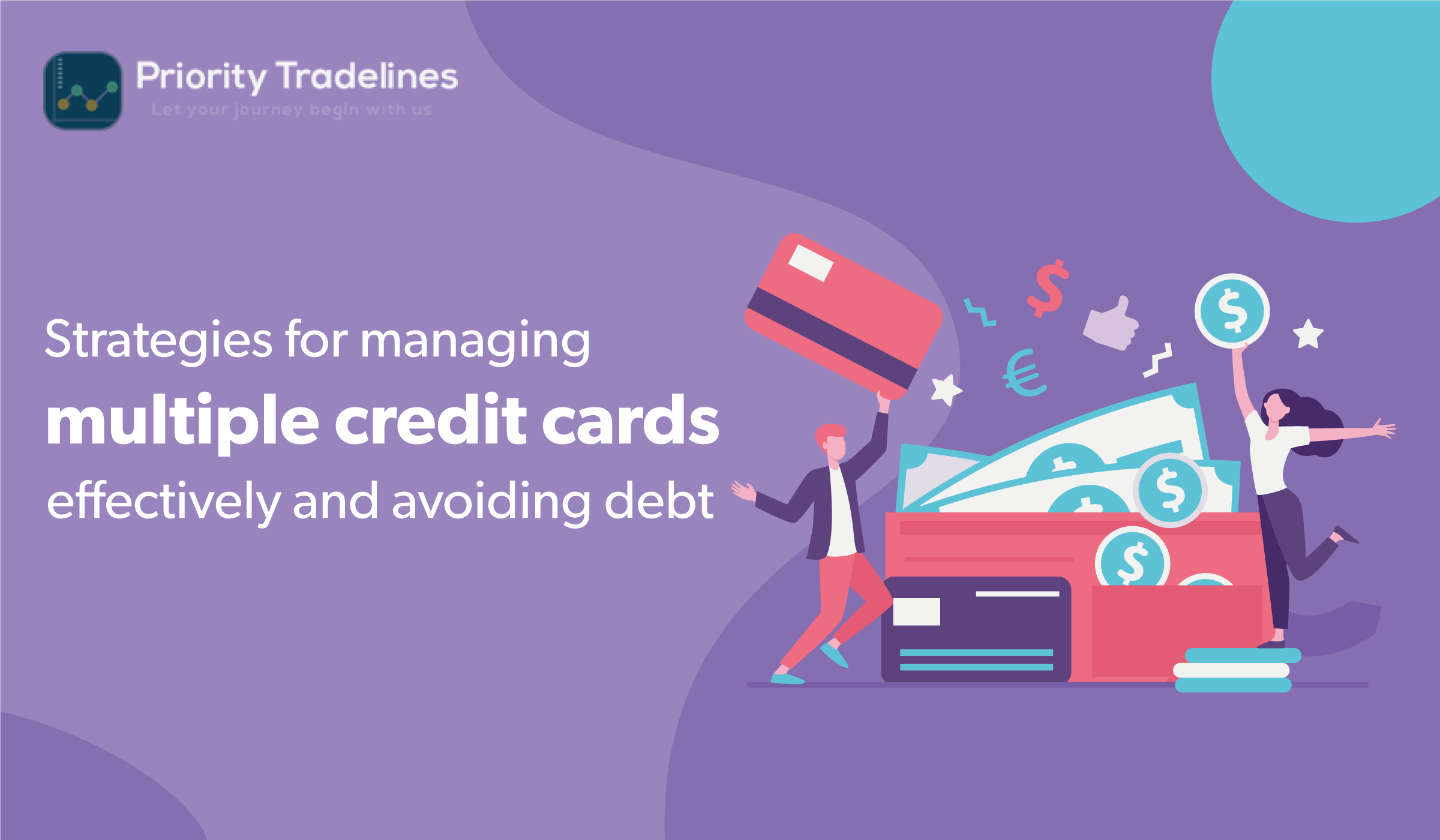Credit cards have quickly risen to prominence among the plethora of payment options now available in economies around the globe. Credit cards in India have a high penetration rate because of the wide variety of perks and discounts cardholders can take advantage of and the convenience of having ready access to cash.
When it comes to credit cards, there are benefits and drawbacks to having more than one. For example, several people worldwide make a profession by collecting credit cards. As a result, many distinct credit cards exist, each with its perks and advantages (such as gas savings, cash back on all transactions, hotel and airfare discounts, and point accumulation on all purchases). In addition, people typically carry multiple credit cards, so they may take advantage of the perks offered by each card and draw on a larger credit limit if necessary.
While having this credit card has its perks, having numerous accounts comes with problems. The debt on your credit cards will continue to grow unless you monitor them regularly. Credit card debt can be stressful, especially when combined with other financial obligations.
Methods for Efficiently Handling Many Credit Cards?
Here are some guidelines to help you keep track of all those credit cards:
Check and keep in mind the credit limit on each card
If you have more than one credit card, you should always verify the available credit before making every purchase, no matter how minor. The bank determines your credit limit after reviewing your credit report and score. One's borrowing capacity decreases as one's credit score rises. On the other hand, you can always ask for a more significant limit when you first apply for the card.
By knowing how much you can spend on all your credit cards at once, you can better budget your payments and avoid exceeding your limit. Most people use credit cards because they think each purchase would be minor, but they are hit with several invoices for substantial sums at the end of the billing cycle.
You need to make a budget for all of your credit cards. You can avoid excessive expenditure on one credit card by spreading the monthly costs among your credit cards.
Choose the right credit card.
Success in credit card management begins with selecting cards that fit your regular spending habits and budget. Credit cards are also well-known for their various perks and incentives, so picking the card or cards that benefit you the most is essential.
The three most important factors to consider while selecting the best credit card are:
-
Rate of Interest Offered: This is the primary consideration when picking a credit card. Spending for the month plus bank-imposed interest is due after the billing cycle. In this light, lower interest rates are preferable. Credit card interest rates might change from one financial institution to the next. This means it's crucial to do your homework and choose a credit card that suits your needs while charging a manageable interest rate.
-
Advantages and Deals: The credit card's perks and rewards are a close second in importance when deciding. Every consumer can profit significantly from a card's perks and rewards when they have ready access to cash. Pick the card that gives the most perks, whether sign-up bonuses, yearly renewal bonuses, or cash back.
- Fees and penalties: are another essential consideration when picking a credit card. Increased joining fees and yearly fees typically accompany higher credit limits on credit cards. Some credit cards offer an introductory period with no annual fee but begin charging one once the first year has passed. When applying for a credit card, read the fine print.
Maintaining a running tally of when bills are due.
If you want to handle several credit cards successfully, you should also make it a habit to check your bills on or near their due dates. Each financial institution will bill you for your credit card on a monthly specified date.
The payment date for any credit cards issued by the same financial institution is the same. The problem arises, though, when you have credit cards from several different financial institutions, and you need to keep track of the due dates for each one.
Especially if you have multiple credit cards, you need to stay on top of your due dates for paying them off. Forgetting to pay even one of your credit cards on time can harm your credit score and report. This will look bad on your credit report and make it harder to get credit in the future.
Verify your credit card's stipulations.
One must carefully read the credit card's terms and restrictions. The terms and conditions detail your annual charge and interest rate as a cardholder. You will receive a hard copy of the credit card agreement and access to the terms and conditions online.
Credit card transactions are monitored often.
Carrying around more than one credit card implies you can purchase various amounts more frequently. Keeping tabs on your spending when using many credit cards can become a hassle. But, it is highly recommended that you do so and monitor your credit card activity frequently.
Credit cards are often owned by one individual but used by members of their own family. Frequent use of credit cards can quickly pile up a sizable balance, even if you don't keep close tabs on your spending. In addition, there is always the possibility of fraudulent purchases being made. You can better prepare for the month-end payment of your credit card account if you regularly review your purchases via your statement or online.
Do's and Don'ts of managing multiple credit cards
Avoid Carrying a Balance
Having a balance on your credit card won't boost your score. Credit card balances should be paid in full after each billing cycle. Maintaining a high credit score is aided by this.
However, if you have outstanding amounts on both of your credit cards, you should prioritize paying off the card with the higher interest rate. Put another way: this will help you save cash on interest. The credit card statement with the smaller debt can be closed as well. To close the card account more quickly, this is helpful. If you have a credit card with a higher interest rate, you should pay it off in full every month instead of just the minimum.
Do Pay on Time
Having a credit card opens the door to numerous discounts and perks. Credit cards offer convenience, but they also come with interest and invoices that are always nagging you to pay them off. As previously discussed, paying your credit card account in full and on time is crucial.
You will receive multiple credit card statements once the billing cycle has concluded if you use more than one credit card. It's not always easy to remember which credit card statement is due and when. A monthly reminder on your phone or calendar at the due date of each card is recommended to prevent the late fees associated with paying a credit card bill late. You may also use your phone to track when your credit card bills are due by downloading one of the many available apps. This way, you won't risk having your credit score negatively affected by a missed payment.
Try not to select cards with Annual Fees
Many financial experts recommend staying away from credit cards with annual fees. It's difficult, especially considering that credit cards with annual fees typically give their cardholders more perks, discounts, and a greater credit limit. Nevertheless, if you do your homework, you can find a few credit cards without annual fees and with a decent rewards system. It is recommended to learn more about credit cards that do not have annual fees and still provide rewards and perks by researching or visiting banks and credit card issuers.
Do Pick the Right Card for Each Purchase
Credit cards come with a wide variety of perks and discounts. But many credit cards are designed to provide bonus rewards for a certain category of purchases. Select a card that gives you bonus points or other benefits for making specific transactions to maximize your rewards. A credit card with shopping perks is a good choice whether you shop online or in stores.
Conclusion
Too many credit cards are a security risk. We can help you minimize or pay off your debts for less than you owe and in less time if you feel they contribute to your financial woes. To ensure that your credit card debt doesn't get the better of you again, you'll also be given guidance on developing more responsible spending habits.



